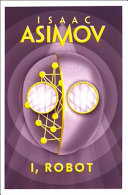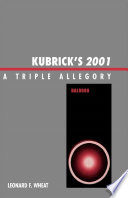import YouTubeEmbed from ”@/components/YouTubeEmbed.astro”;
Are you looking for the best science fiction authors? Here are some of the top sci-fi writers of all time, and pick up amazing science fiction novels today!
There is nothing quite like the world of science fiction. It has the ability to instantly transport you to another world, leaving Earth behind. You also get to explore the capabilities of time travel, interact with androids, and consider artificial intelligence all while imagining what the future might be like.
For more genre exploration, you might also enjoy best fantasy authors, best horror authors, best mystery authors, or authors like Isaac Asimov.
Table of Contents
Open Table of Contents
- Science Fiction Subgenres & Their Masters
- Science Fiction Authors You Must Read
- 1. Isaac Asimov, 1920 - 1992
- 2. Arthur C. Clarke, 1917 - 2008
- 3. Frank Herbert, 1920 - 1986
- 4. Ursula K. Le Guin, 1929 - 2018
- 5. H. G. Wells, 1866 - 1946
- 6. Neal Stephenson, 1959
- 7. Dan Simmons, 1948
- 8. Philip K. Dick, 1928 - 1982
- 9. Liu Cixin, 1963
- 10. Jules Verne, 1828-1905
- 11. Robert A. Heinlein, 1907-1988
- 12. Ray Bradbury, 1920-2012
- 13. Edward Rice Burroughs, 1875-1950
- 14. Iain M. Banks
- Find Your Perfect Science Fiction Adventure
- Final Word on the Best Science Fiction Authors
- FAQs About the Best Science Fiction Authors
- Who is considered the greatest science fiction author of all time?
- Which science fiction author should I read first?
- What’s the difference between hard and soft science fiction?
- Are science fiction books just about predicting the future?
- Which science fiction series should I start with?
- Why are the “Big Three” science fiction authors important?
- What modern science fiction authors should I know?
- How do I choose between different science fiction subgenres?
Science Fiction Subgenres & Their Masters
Science fiction encompasses many subgenres, each with unique characteristics and legendary authors. From hard science fiction that emphasizes scientific accuracy to space opera’s grand adventures, here are the essential sci-fi authors organized by their primary contributions to the genre.
Golden Age Foundations (1930s-1950s)
The Golden Age established sci-fi’s core themes: robotics, space exploration, and galactic empires.
New Wave Innovation (1960s-1970s)
Writers experimented with literary techniques and explored social themes.
Cyberpunk Revolution (1980s-1990s)
Authors merged high technology with low-life characters in dystopian futures.
Contemporary Masters (2000s-Present)
Modern writers blend classic elements with fresh perspectives and diverse voices.
Science Fiction Authors You Must Read
1. Isaac Asimov, 1920 - 1992
Isaac Asimov via Wikimedia, Public Domain
Subgenre: Golden Age Hard Science Fiction Gateway Book: Foundation (Foundation #1) Series Reading Order: Foundation → Foundation and Empire → Second Foundation (Original trilogy)
Isaac Asimov is considered to be one of the best authors of all time, let alone one of the best sci fi writers ever. He was an American writer and professor, teaching biochemistry at Boston University. He wrote or edited more than 500 books during the course of his storied career. Even though he explored multiple elements of Science Fiction, he is best known for his works on androids, robots, and other sentient life.
In many ways, he is considered to be the father of the modern science fiction genre. A lot of his books remain best-sellers, and he is particularly well known for several series, notably Foundation, which was recently adapted into a TV series. He is also the author of I, Robot, which was turned into a movie. His Three Laws of Robotics have influenced both science fiction and real robotics development.
Essential Series: Foundation series, Robot series, Galactic Empire series
2. Arthur C. Clarke, 1917 - 2008
A portrait of Arthur C. Clarke
Arthur C Clarke is an English science fiction writer. In addition to his work as an author, he also hosted a television series, explored the depths of the ocean, and made a career as an inventor. In addition to his novels, he published a variety of essays focusing on space travel, encouraging man to shoot for the stars. He even had the ability to predict the future, predicting that man would eventually be able to instantly contact people anywhere on Earth, long before the invention of the internet.
Even though a lot of his works are listed among the greatest science fiction stories of all time, he is best known for* 2001: A Space Odyssey*, a work that would later become a critically-acclaimed movie as well. Before you check out the famous movie, you may want to pick up a copy of his book for yourself.
3. Frank Herbert, 1920 - 1986
Frank Herbert via Wikimedia, Public Domain
Frank Herbert is a storied American science fiction author. He was always fascinated by writing, starting to read the newspaper from cover to cover from an early age. Eventually, he developed a passion for science fiction, thinking about what the future might look like. In particular, he is known for the novel Dune, which he published in 1965. It became a massive hit, inspiring five sequels to be published after it. In addition, the popular series has been adapted to the big screen multiple times. In addition to his work as an author, he also worked as a newspaper journalist, ecological consultant, photographer, and lecturer.
The Duneseries is set in the distant future, taking place over thousands of years. It explores the variety of themes that the human species will have to tackle to expand to other worlds. It was also turned into a hit film in 2021 directed by Denis Villeneuve, for more recommendations like this,
4. Ursula K. Le Guin, 1929 - 2018
A portrait of Ursula K. Le Guin
Ursula K. Le Guin is one of the most popular American science fiction authors of all time. Most of her works were set in the unique Hainish universe, and she is best known for her Earthsea fantasy novels. Her career lasted more than 60 years and included dozens of novels and countless short stories. She earned her master’s degree in French, and she started writing full-time in the late 1950s. Some of her most popular books include A Wizard of Earthsea and The Left Hand of Darkness.
The Left Hand of Darkness won her the Hugo award and the Nebula award, both for the best novel. She was the first woman to win either award. You might want to check out The Left Hand of Darkness on Amazon.
5. H. G. Wells, 1866 - 1946
A portrait of H.G. Wells
H. G. Wells was an English writer who published during the last half of the 19th century and the early part of the 20th century. While he wrote biographies, satires, historical fiction, and social commentary, he is best known as a pioneer of science fiction. Wells is often called the “father of science fiction” alongside Jules Verne, and his groundbreaking novels like The War of the Worlds, The Time Machine, and The Invisible Man helped define the genre’s early years.
In many ways, he had a progressive vision for the future. A popular futurist, he wrote about nuclear weapons, space travel, planes, satellite TV, and the internet long before any of these became reality. He envisioned something of a utopia in the future, explored the possibility of time travel, and discussed the possibility of invisibility. Some of his most popular works include The War of the Worlds,The War in the Air**,The Time Machine, and*The Invisible Man**. He was nominated for the Nobel Prize in Literature four times.
6. Neal Stephenson, 1959
A portrait of Neal Stephenson
Neal Stephenson is one of the most popular contemporary American science fiction writers. Even though he has been interested in the applications of future technology for nearly his entire life, his work in the science fiction area has explored a lot of new areas. His work has been described as cyberpunk, with a marriage of historical fiction, science fiction, and cryptography. In addition to his work as a novelist, he also publishes regularly in technology publications, including Wired.
Stephenson’s influential work fuses cyberpunk, speculative fiction, and historical adventure, often exploring the intersection of technology and society. Some of his most popular books include Snow Crash, Cryptonomicon, and the Baroque Cycle trilogy (Quicksilver, The Confusion, The System of the World). If you’re new to his writing, start with Snow Crash for a fast-paced, visionary look at virtual reality and the future. You might also enjoy our round-ups of the best cyberpunk authors and authors like Octavia Butler.
7. Dan Simmons, 1948
Dan Simmons is a popular American science fiction writer. He was born in Peoria, Illinois, and earned his bachelor’s degree in English from Wabash College. He went on to earn his Master’s in education from Washington University in St Louis. He started writing short stories at an early age, but his career did not flourish until 1982. At that time, he published a short story, called The River Styx Runs Upstream, and it was published in the*Twilight Zone Magazine**, earning him a lot of recognition for his work.
Today, Simmons is best known as the author of the Hyperion Cantos series of science fiction novels as well as the Ilium and Olympos science fiction novels. He has the ability to bring multiple genres together, frequently blending horror, Science Fiction, and Fantasy. He also won a World Fantasy Award for his work Song of Kali in 1985. You can check out some of his work for yourself by picking up a copy of the Hyperion Cantos series from Amazon.
8. Philip K. Dick, 1928 - 1982
Philip K. Dick via Wikipedia, Public Domain
Philip K Dick is one of the most prolific science fiction writers of all time. During his career, he wrote more than 44 novels and 121 short stories. Most of his short stories appeared in science fiction magazines. His work explored a variety of areas including the nature of reality, human nature, perception, and the idea of identity. He also told stories that took place in alternate realities, none of them involving altered states of consciousness.
Even though he was born in Chicago, he spent most of his time growing up in the San Francisco Bay area. He published his first stories in 1952 when he was only 23 years old. His career started off slowly, but he garnered critical acclaim for his work, The Man in the High Castle, an alternate history novel in 1962. It earned him the Hugo Award for Best Novel. The book was also adapted into a popular TV series. Some of his other popular works includeDo Androids Dream of Electric Sheep**,Ubik, and*Flow My Tears**,*the Policeman Said**.
You may want to check out his book, The Man in the High Castle, for yourself. It is available on Amazon. If you like science fiction, you’ll love our round-up of the best Edgar Rice Burroughs books).
9. Liu Cixin, 1963
A portrait of Liu Cixin
Liu Cixin is a Chinese science fiction author behind the Three-BodyProblem*. That’s hard science fiction series about the future of humanity and what would happen if we found alien life. The series is unlike anything else on this perhaps due to Liu writing from the point of view of China and not Western society. The series is being turned into a television show by the showrunners behind Game of Thrones. His work is regarded as hard science fiction.
10. Jules Verne, 1828-1905
Jules Verne via Wikipedia, Public Domain
Jules Verne was born in Nantes, France. He’s regarded as the father of science fiction and many of his books have been turned into films, plays and even video games. His first book was Five Weeks in a Balloon, published in 1863. Some of his most famous works include Twenty Thousand Leagues Under the Sea, Journey to the Centre of the Earth and Around the World in Eight Days. He died of complications related to chronic diabetes and a subsequent stroke.
11. Robert A. Heinlein, 1907-1988
Robert A. Heinlein via Wikipedia, Public Domain
Heinlein was born in Missouri, the third of seven children. He served in the US Navy and was also married multiple times. He’s well known for his advice to writers, known as Heinlein’s rules of writing. These are:
You must write.
Finish what you start.
You must refrain from rewriting, except to editorial order.
You must put your story on the market.
You must keep it on the market until it has sold.
Friday, Glory Road, I Will Fear No Evil and Starship Troopers are some of his most famous works. Director Paul Verhoeven turned that last book into a satirical film in 1997.
12. Ray Bradbury, 1920-2012
Ray Bradbury via Wikipedia, Public Domain
Bradbury was born in Illinois. He spent much of his early life reading and writing and penned his first story aged 12. He published his first story, Hollerbochen’s Dilemma, aged 19. He contributed regularly to film magazines and became a full-time writer aged 24. He was a big believer in the importance of writing every day. Some of his most famous works include I Sing the Body Electric, Fahrenheit 451*, and*The Martian Chronicles/
13. Edward Rice Burroughs, 1875-1950
Edward Rice Burroughs via Wikipedia, Public Domain
Edward Rice Burroughs was born in Chicago. He began writing fiction in his thirties to earn a side income. He said about this period of his life, ”… if people were paid for writing rot such as I read in some of those magazines, that I could write stories just as rotten. As a matter of fact, although I had never written a story, I knew absolutely that I could write stories just as entertaining and probably a whole lot more so than any I chanced to read in those magazines.”
Burrough turned writing a series of books into a fine art and earned a good living. He even self-published or printed his own books in the 1930s. His most famous works include the Tarzanseries, theBarsoomseries and theVenusseries.
14. Iain M. Banks
Iain Banks via Wikipedia, Public Domain
Iain Banks (1954-2013) was a mainstream fiction and science fiction author. From Scotland, He achieved fame writing science fiction through his pseudonym, Iain M. Banks, with the novel Consider Phlebas. That was published in 1987.
Banks’ science-fiction novels, especially the 10-book Cultureseries, amassed a cult following and constantly received critics’ praise. According to his official website, Banks was lauded as “the most imaginative novelist of his generation” by *The Times, while The Guardian called him “the standard by which the rest of SF is judged.”
Sadly, in April 2013, Banks revealed he was suffering from late-stage cancer, and died the following June, leaving an enormous gap in contemporary science fiction.
“The trouble with writing fiction is that it has to make sense, whereas real life doesn’t.”
Iain M. Banks
Find Your Perfect Science Fiction Adventure
Ready to discover your ideal sci-fi series? Take our Book Recommendations Quiz to get personalized recommendations based on your reading preferences, whether you prefer hard science fiction, space opera, cyberpunk, or time travel stories.
Final Word on the Best Science Fiction Authors
These are a few of the most popular science fiction writers of all time. The science-fiction genre is massive with many great books worth reading. In many ways, the world of science fiction gives us a goal to shoot for, pushing us to move forward as a race. Even though many science fiction books can show what our future might look like at its worst, these books can also inspire us to be our best. As a result, many science fiction books have led to amazing TV shows, movies, and technological leaps, showing the power these books have.
If you want an introduction to this genre, you may want to take a look at some of the works by the writers above. You will quickly find that the science fiction area has a lot of sub-genres as well. You might even find that many of the books have inspired some of your favorite characters from movies and TV shows.
Related Reading
- Explore best fantasy authors for magical worlds and epic adventures
- Check out authors like Isaac Asimov for more hard science fiction recommendations
- Discover best horror authors for darker speculative elements
- Browse our science fiction genre page for more sci-fi content
FAQs About the Best Science Fiction Authors
Who is considered the greatest science fiction author of all time?
Isaac Asimov is widely considered the greatest science fiction author, often called the “father of modern science fiction.” His Foundation series, Robot series, and Three Laws of Robotics have fundamentally shaped the genre. However, Arthur C. Clarke, Frank Herbert, and Ursula K. Le Guin also have strong claims to this title.
Which science fiction author should I read first?
For beginners, Isaac Asimov’s Foundation or Arthur C. Clarke’s 2001: A Space Odyssey provide excellent entry points. Asimov offers approachable prose with big ideas, while Clarke delivers iconic sense-of-wonder storytelling. Philip K. Dick’s Do Androids Dream of Electric Sheep? is also great for those interested in exploring reality and identity themes.
What’s the difference between hard and soft science fiction?
Hard science fiction emphasizes scientific accuracy and technical details (like works by Arthur C. Clarke or Liu Cixin), while soft science fiction focuses more on social sciences and human relationships, using science as a backdrop (like Ursula K. Le Guin’s works). Both approaches can create compelling stories.
Are science fiction books just about predicting the future?
No, science fiction uses future or alternate settings to explore current human issues, social problems, and philosophical questions. Authors like Philip K. Dick examine identity and reality, while Frank Herbert’s Dune explores ecology and politics. The best sci-fi illuminates present-day concerns through speculative scenarios.
Which science fiction series should I start with?
Asimov’s Foundation series offers a great introduction to space opera and galactic civilizations. Frank Herbert’s Dune provides rich world-building and political intrigue. For cyberpunk, try William Gibson’s Neuromancer. For hard science fiction, Liu Cixin’s Three-Body trilogy offers a fresh perspective from Chinese science fiction.
Why are the “Big Three” science fiction authors important?
Isaac Asimov, Arthur C. Clarke, and Robert Heinlein are called the “Big Three” because they dominated science fiction’s Golden Age (1940s-1950s) and established many core themes and tropes still used today. They made science fiction more scientifically rigorous and literarily respectable.
What modern science fiction authors should I know?
Contemporary masters include Neal Stephenson (cyberpunk and cryptography), Liu Cixin (hard science fiction), Dan Simmons (Hyperion Cantos), and Iain M. Banks (Culture series). These authors bring fresh perspectives while building on the foundations laid by earlier masters.
How do I choose between different science fiction subgenres?
Consider your interests: space opera for grand adventures (Asimov, Herbert), cyberpunk for technology and society (Stephenson), hard sci-fi for scientific accuracy (Clarke, Liu Cixin), or social science fiction for exploring human nature (Le Guin). Many readers enjoy exploring multiple subgenres.




